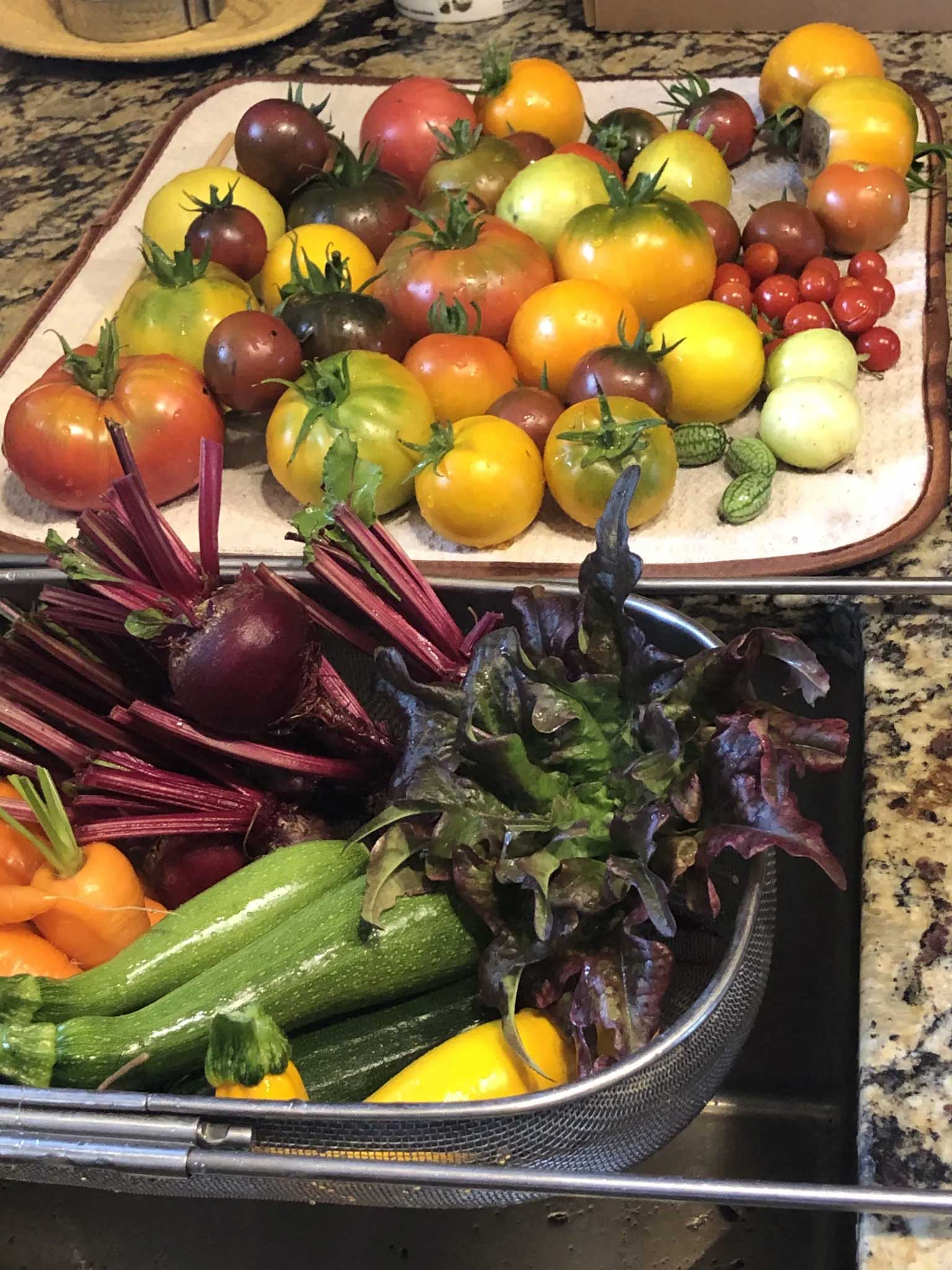By Ameille Warner.
For over 10,000 years, the people of the San Luis Valley (SLV) have been sustained by the bounties of this land — hunting, foraging, and cultivating all they needed thanks to the fertile soil and abundant water. Agriculture in the Valley continues to play a vital role in Colorado’s economy, ranging from the mighty SLV potato to diverse crops and livestock, contributing nearly $490 million and standing as the region’s largest private employer.
Despite this rich agricultural heritage, modern times have created complex obstacles within the SLV food system. Barriers to local producers include the growing export model, monocropping, and the growth of large corporate farming. Residents are impacted by low income, geographic isolation, and limited market access, contributing to poor nutrition and above average food insecurity rates. These challenges affect anyone who eats food, produces food, or distributes food.
This topic is of great concern to the San Luis Valley Local Foods Coalition (SLVLFC), a non-profit organization dedicated to promoting a local and sustainable food system in the region. To better understand these challenges and create a plan to bolster local food systems, SLVLFC initiated the “Local Foods, Local Places” program in 2016, focusing on promoting local food systems and community wellbeing in and around Alamosa. This led to an action plan in 2017, addressing goals such as integrating local foods into community development, prioritizing economic development, and enhancing food access and learning programs.
SLVFC Founding Director Liza Marron reported that many of the action steps were highly successful for Alamosa, and the organization desired to update the plan and expand this work into other SLV counties. In 2022 the San Luis Valley Community Food & Agricultural Assessment (CFAA) was initiated, with Jae Sanders serving as CFAA Coordinator. Marron stated, “A secret to the success of the San Luis Valley Local Foods Coalition is that it uses the community voice to inform its work.”
Building on the success of the Alamosa-focused initiative, the CFAA dug deeper into the intricacies of the regional food and agriculture system. The assessment aimed to understand the system’s impact on producers’ viability and residents’ health, economic opportunities, and soil health and water conservation, as well as access to quality and culturally appropriate food choices. It engaged organizational partners and leaders across the six counties, incorporating community input and expert guidance. “The 2024 CFAA Assessment Report will inform the food and agricultural planning phase, which will create a plan to build the SLV food system in a way that works for producers and for families,” said Marron, who recently retired as SLVLFC co-director. Max Gibson, who has assumed the full SLVLFC director position, said, “We’re working to ensure that SLV residents can get fresh, healthy food, that youth understand where their food comes from, and that family farmers, ranchers, and restaurateurs can grow their businesses. This community-led assessment and action planning brings people together to decide how we get there.”
The assessment identified five key focus areas:
1) healthy food access, 2) viable opportunities for agricultural producers, 3) diversity, equity and inclusion, 4) environmental health, and 5) emergency food planning.
These focus areas were explored through community surveys, farmer/rancher surveys, food business surveys, county food system summits, and a PhotoVoice component.
The results highlighted the importance of promoting a thriving local food and farm economy, supporting youth agricultural programs, and addressing water challenges critical to farmers. The need for equitable access to food and land, soil and water conservation, and emergency food planning also emerged as crucial aspects requiring attention.
The assessment uncovered disparities within the food system, emphasizing the challenges faced by residents in accessing farm and ranch lands, and healthy and culturally relevant foods. Diversity is increasing in the region, with a call for addressing systemic disparities, improving education, and fostering inclusivity, while maintaining the cultural traditions of the region.
Environmental concerns were evident, with the community expressing worries about increasing water scarcity and climate change impacting agriculture. Despite challenges, there is a growing interest in environmental solutions, such as renewable energy, soil health, and water-smart practices.
Food access emerged as a significant concern, with high rates of food insecurity, limited local outlets, and challenges related to cost and transportation. The community aspires to be more food sovereign, desiring access to food system infrastructure like compost facilities, community gardens, and greenhouses, as well as education on growing, preserving, and preparing their own food.
Reflecting on emergency food planning, the COVID-19 pandemic exposed vulnerabilities in the food system. Residents expressed a need for better communication about available support programs and a focus on local food infrastructure for increased resilience.
Participants expressed gratitude for local farmers, businesses, and organizations like the SLVLFC, La Puente, and farmers markets. The role of these organizations in developing the local food system was acknowledged and appreciated.
Looking ahead, SLVLFC plans to utilize the assessment data to launch the Community Food and Agricultural Action Planning phase. This engagement process will involve community members in crafting actionable goals and recommendations around the five focus areas to strengthen the SLV’s food system. SLVLFC intends to merge the existing “Local Foods, Local Places” action plan with the new plan, extending its reach to cover the entire SLV. This comprehensive plan will serve as a roadmap, guiding the region toward a more resilient, equitable, and sustainable food system.
To learn more about the SLV Community Food & Agricultural Assessment, visit www.slvlocalfoods.org/cfaa.
If you want to become involved with future surveys, summits, and PhotoVoice opportunities, contact Jae Sanders at jae.slvlocalfoods@gmail.com.


